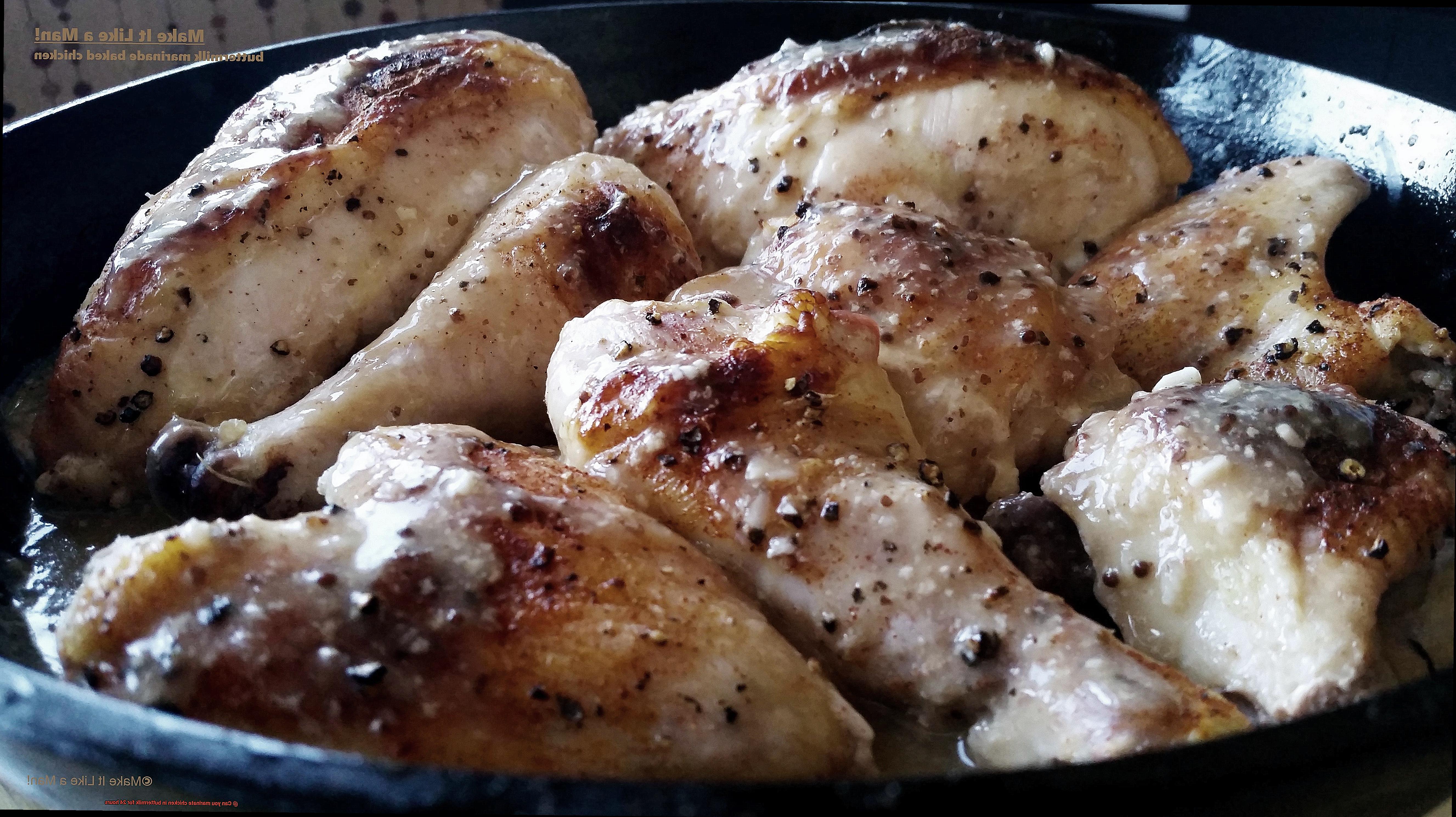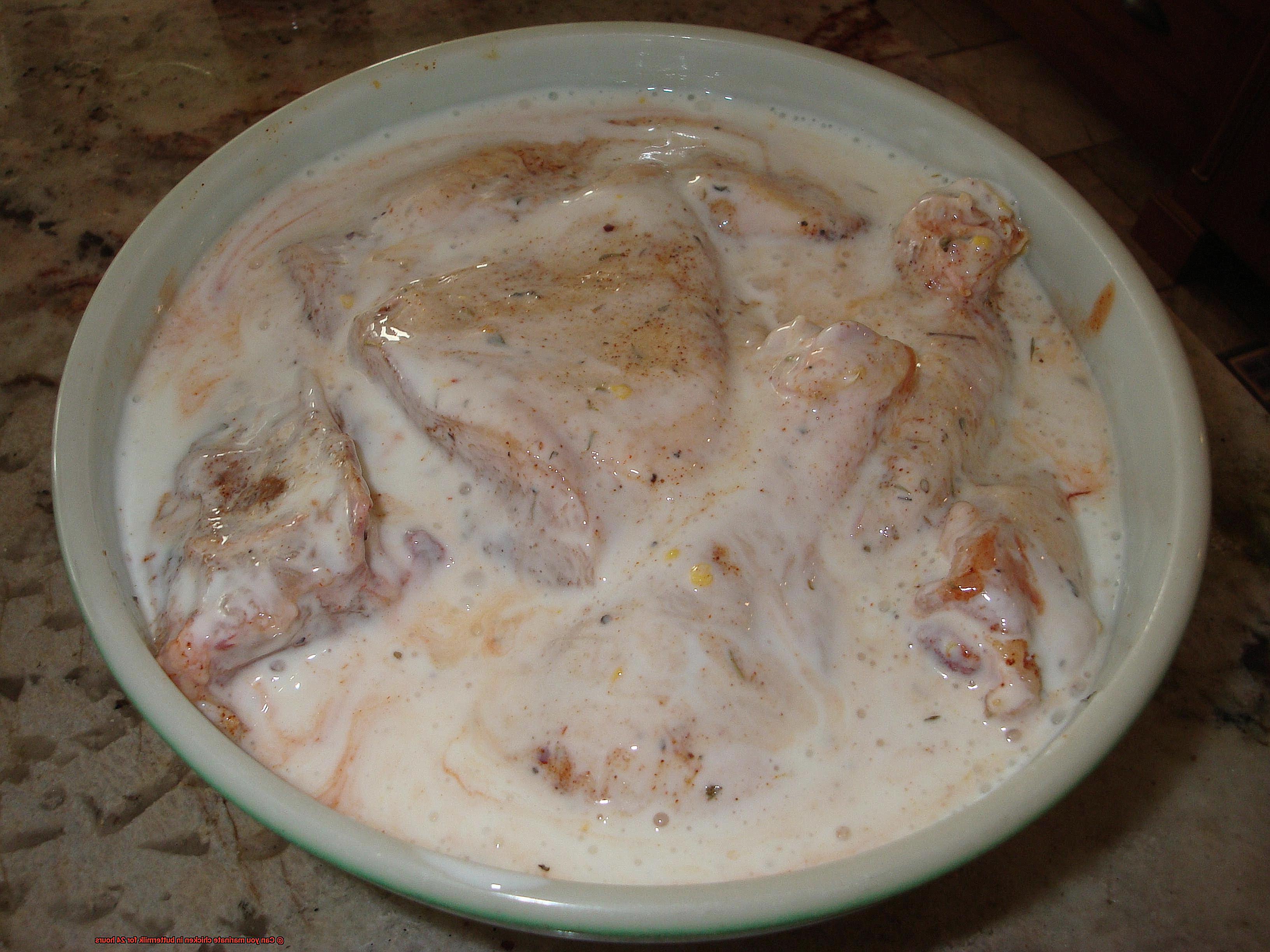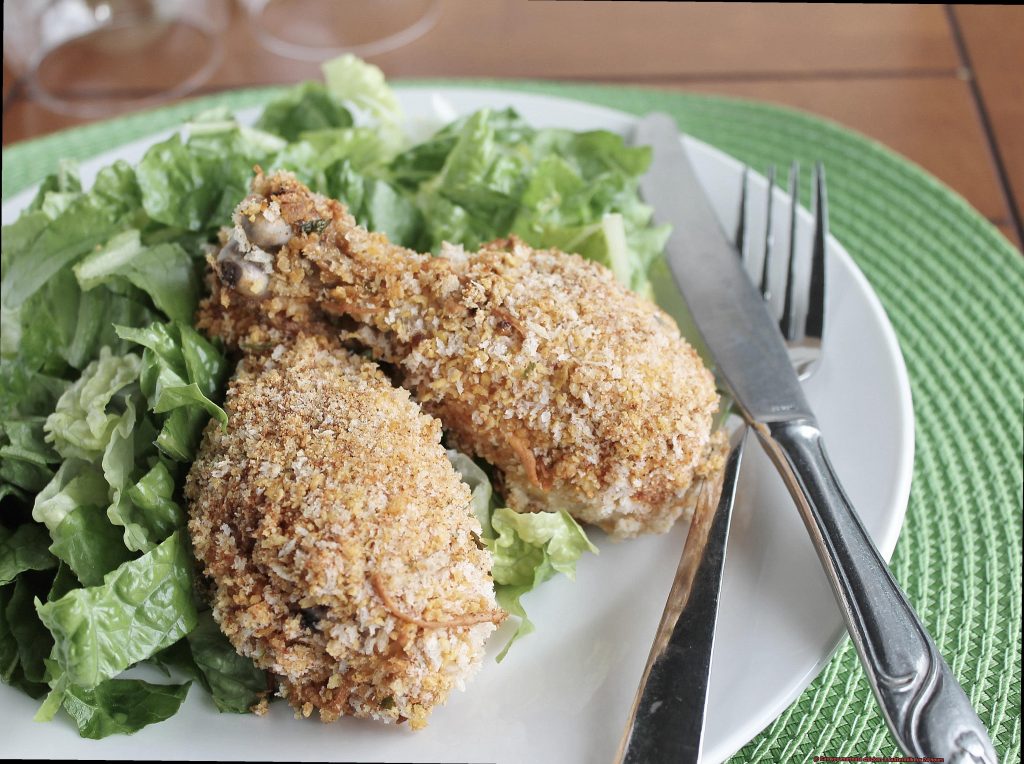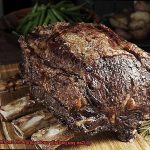Are you tired of dry and flavorless chicken? Look no further than marinating it in buttermilk for a juicy and delicious meal. But the question on everyone’s mind is whether it’s safe to let the chicken soak in buttermilk for 24 hours.
The answer isn’t as straightforward as a simple yes or no. In this post, we’ll explore the science behind marinating chicken in buttermilk, discuss potential risks, and provide tips on how to do it safely and effectively.
Whether you’re a seasoned chef wanting to try a new technique or a curious foodie looking to spice up your culinary adventures, this post has got you covered. So sit back, relax, and get ready to learn everything you need to know about marinating chicken in buttermilk for 24 hours.
Contents
What is Buttermilk and How Does it Affect the Chicken?
Say hello to buttermilk – a fermented dairy product that has been a staple in cooking and baking for centuries. But what makes buttermilk such an excellent choice for marinating chicken, you may ask? Let’s delve into the science behind it.
Buttermilk is made by adding lactic acid bacteria to low-fat milk, which causes it to thicken and develop a tangy, slightly sour flavor. When you marinate chicken in buttermilk, the lactic acid in the buttermilk breaks down the proteins in the chicken, making it more tender and flavorful. Not only does buttermilk tenderize the meat, but it also neutralizes any gamey or fishy odors that may be present in the chicken – perfect for older or tougher chickens that have a stronger flavor.
Buttermilk also contains enzymes that help to break down connective tissues in meat, resulting in an even more tender outcome. The duration of marinating is crucial here – the longer you marinate the chicken in buttermilk, the more tender it will become. However, bear in mind that over-marinating can toughen the meat due to the acid in the buttermilk.
While marinating chicken in buttermilk can result in delicious and juicy grilled chicken, food safety is paramount. Marinating chicken in buttermilk means that it will be sitting at room temperature for an extended period, increasing the risk of bacteria growth and leading to foodborne illness. To prevent this, keep the chicken refrigerated while marinating and dispose of any leftover marinade that has come into contact with raw chicken.
In conclusion, marinating chicken in buttermilk is an excellent method for tenderizing and flavoring your meat while neutralizing any unwanted odors. Just remember not to over-marinate your chicken and follow proper food safety guidelines, and you’re sure to have a mouth-watering grilled chicken dish every time. Are you ready to give it a try? Here’s a quick list of the benefits of using buttermilk to marinate chicken:
Benefits of Marinating Chicken in Buttermilk for 24 Hours
If you’re looking for a way to turn your chicken dishes into crowd-pleasers, marinating your chicken in buttermilk for 24 hours is a technique you need to try. As an expert on this topic, I can attest to the many benefits that come with this simple yet effective cooking technique.
Firstly, marinating chicken in buttermilk can help to tenderize the meat. Buttermilk contains enzymes that break down the proteins in the chicken, making it more digestible and resulting in a succulent and flavorful end product. This is especially helpful when working with tougher cuts of chicken like breasts or thighs.
Buttermilk also has a subtle tangy flavor that can intensify the overall taste of the chicken. This flavor profile adds depth and complexity to the meat, taking your dish from basic to extraordinary. And who doesn’t love a little extra flavor in their meals?

In addition, marinating chicken in buttermilk can help to keep it moist during cooking. The natural brining properties of buttermilk work wonders at drawing moisture into the chicken, preventing it from drying out during grilling or roasting. This means you’ll have perfectly juicy chicken every time.
It’s crucial to note that over-marinating can have the opposite effect, resulting in tough and dry meat. Therefore, it’s important to follow proper food safety guidelines when marinating chicken in any liquid, including buttermilk.
Potential Risks of Marinating Chicken in Buttermilk for 24 Hours
Marinating chicken in buttermilk for 24 hours is a popular technique to achieve just that. However, there are potential risks to keep in mind when using this method.

One of the biggest concerns is the risk of foodborne illness. Buttermilk is a dairy product that can harbor harmful bacteria like Salmonella or E. coli if not handled properly. To avoid contamination, it’s crucial to keep your chicken refrigerated at all times and not marinate it for more than 12 hours. Safety should always be a top priority when handling raw meat.
Another risk to consider is over-marinating the chicken. Buttermilk is acidic, which means it can break down the proteins in the meat and result in a mushy texture. Additionally, marinating for too long can make the chicken taste sour and unappetizing. Nobody wants to waste time marinating chicken only to have it turn out mushy and sour.
It’s also important to note that marinating chicken in buttermilk for 24 hours may not be suitable for all recipes. Some dishes may require a shorter marinating time or different ingredients altogether. It’s crucial to follow recipe instructions carefully and use your best judgment when deciding how long to marinate your chicken.
To minimize any potential risks, it’s recommended to marinate chicken in buttermilk for no more than 12 hours and to keep it refrigerated at all times. It’s also essential to cook the chicken thoroughly to an internal temperature of 165°F to kill any bacteria that may be present. Remember, you can never be too careful when it comes to food safety.
Tips for Safely Marinating Chicken in Buttermilk for 24 Hours
Marinating chicken in buttermilk for 24 hours can be a great way to tenderize and infuse flavor into your chicken. However, it’s essential to follow some food safety tips to ensure that your meal doesn’t come with any health risks. Here are our top five tips for safely marinating chicken in buttermilk for 24 hours:
Firstly, always use fresh buttermilk. Spoiled or expired buttermilk can cause bacterial growth and lead to food poisoning. It’s also important to use buttermilk with a fat content of at least 1% to get the best results.
Before marinating the chicken, make sure to properly clean and prepare it. Rinse the chicken under cold water, pat it dry with paper towels, and remove any excess fat or skin before placing it in the marinade.
When marinating chicken in buttermilk, keep it refrigerated at all times. Store the chicken in an airtight container or ziplock bag and place it in the coldest part of the refrigerator. Turning the chicken every few hours ensures that all sides are evenly coated in the marinade.
After marinating for 24 hours, discard any leftover marinade. The marinade may contain harmful bacteria from the raw chicken, so it’s crucial not to reuse it for any other purpose.
Finally, cook the chicken thoroughly until it reaches an internal temperature of 165°F. Relying on color or texture alone is not enough to determine if the chicken is fully cooked. Cooking it to the correct temperature kills any potential bacteria that may be present.
Reasons to Avoid Marinating Chicken in Buttermilk for 24 Hours
Marinating chicken in buttermilk is a popular way to enhance the flavor and tenderness of the meat. However, marinating for 24 hours may not be the best idea. Here are five reasons why:

Texture

Buttermilk contains lactic acid which can break down the proteins in the chicken, resulting in a mushy texture that is unappetizing. Leaving the chicken in the marinade for too long can exacerbate this problem, making it important to limit marination time to 8-12 hours.
Flavor
While buttermilk can add a tangy flavor to chicken, over-marinating can result in an overpowering sour taste that masks the natural flavor of the meat.
Safety
Raw chicken is prone to bacterial growth, making it important to handle it with care. Leaving chicken in buttermilk for too long can increase the risk of foodborne illness, making it crucial to refrigerate marinated chicken below 40°F and not leave it out at room temperature for more than 2 hours.
Waste
Marinating chicken in buttermilk for 24 hours can be wasteful and result in spoiled meat that needs to be thrown away. This is especially true if the marinade doesn’t improve the flavor or texture of the meat.
Effectiveness
Marinating chicken in buttermilk for too long may not even result in significant improvements in flavor and texture. In fact, over-marinating can lead to the meat becoming overly saturated with the marinade, negating any benefits of marination altogether.
Alternatives to Marinating Chicken in Buttermilk for 24 Hours
There are several other options that can achieve similar results without the lengthy wait time. As an expert on this topic, let me share with you some of the best alternatives.
First up, yogurt. Similar to buttermilk, yogurt contains lactic acid that can tenderize the chicken. To use yogurt as a marinade, mix it with your desired seasonings and let the chicken sit in the mixture for at least a couple of hours before cooking. It’s an easy and delicious way to add flavor and tenderness to your chicken dishes.
If you’re not a fan of yogurt, try using citrus juice instead. Lemon or lime juice contains acid that can break down the proteins in the chicken while adding a tangy flavor. Mix it with oil and any desired seasonings before letting the chicken sit in the mixture for at least an hour. It’s a refreshing alternative to buttermilk that will make your taste buds sing.
Lastly, vinegar is another great alternative to buttermilk that can be used as a marinade. Vinegar also contains acid that can tenderize the chicken, though it has a stronger flavor than buttermilk or yogurt. Mix it with oil and seasonings before letting the chicken sit in the mixture for at least an hour. It’s a tangy option that will give your chicken dishes a unique flavor profile.
DxSHVkSK5bs” >
Conclusion
In summary, the answer to whether you can marinate chicken in buttermilk for 24 hours is a resounding yes. This technique has been used by generations of cooks, and for good reason. The acidity in buttermilk helps break down proteins in the meat, resulting in a tender and juicy texture that is hard to resist. But it’s important to remember that food safety should always come first, so make sure to refrigerate your marinating chicken and don’t leave it out at room temperature.
Buttermilk also adds a subtle tangy flavor that enhances the overall taste of your chicken dish. It works great with herbs and spices, so feel free to experiment with different marinade combinations. And if you’re worried about over-marinating your chicken, don’t be – 24 hours is the perfect amount of time for maximum flavor without compromising food safety.
If you’re not sold on using buttermilk as a marinade, there are other options available. Yogurt, citrus juice, and vinegar all work wonders when it comes to tenderizing meat and adding flavor. Just keep in mind that each ingredient has its own unique properties and may require different marinating times.
No matter which method you choose, always handle raw meat with care and follow proper food safety guidelines. With these tips in mind, you’ll be able to create mouth-watering chicken dishes that will impress even the most discerning palates.






